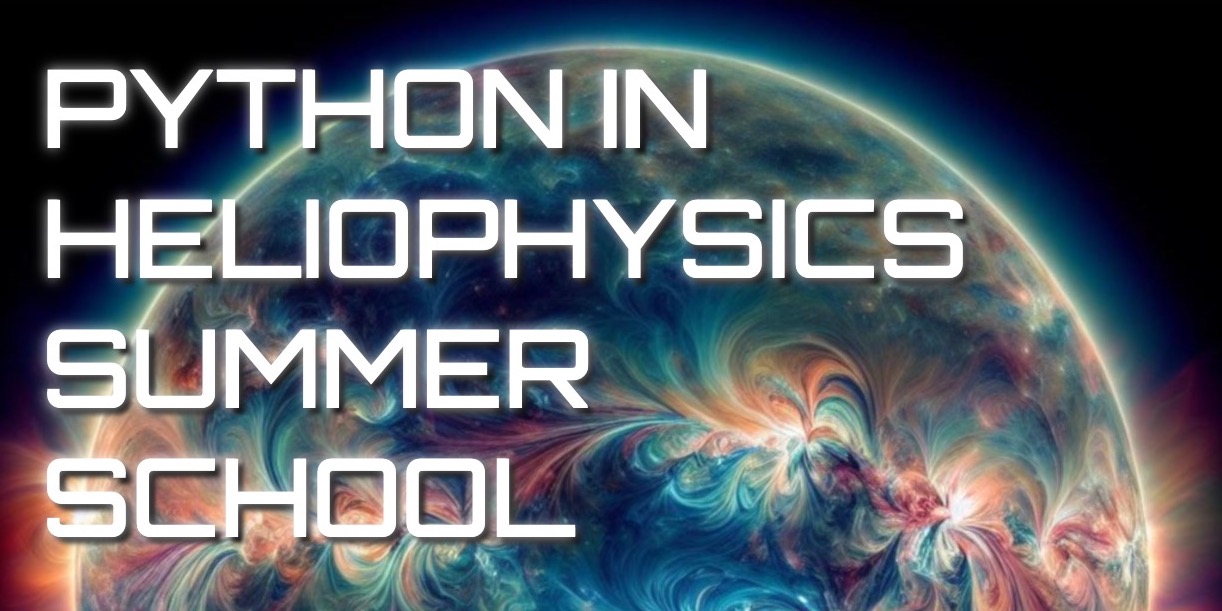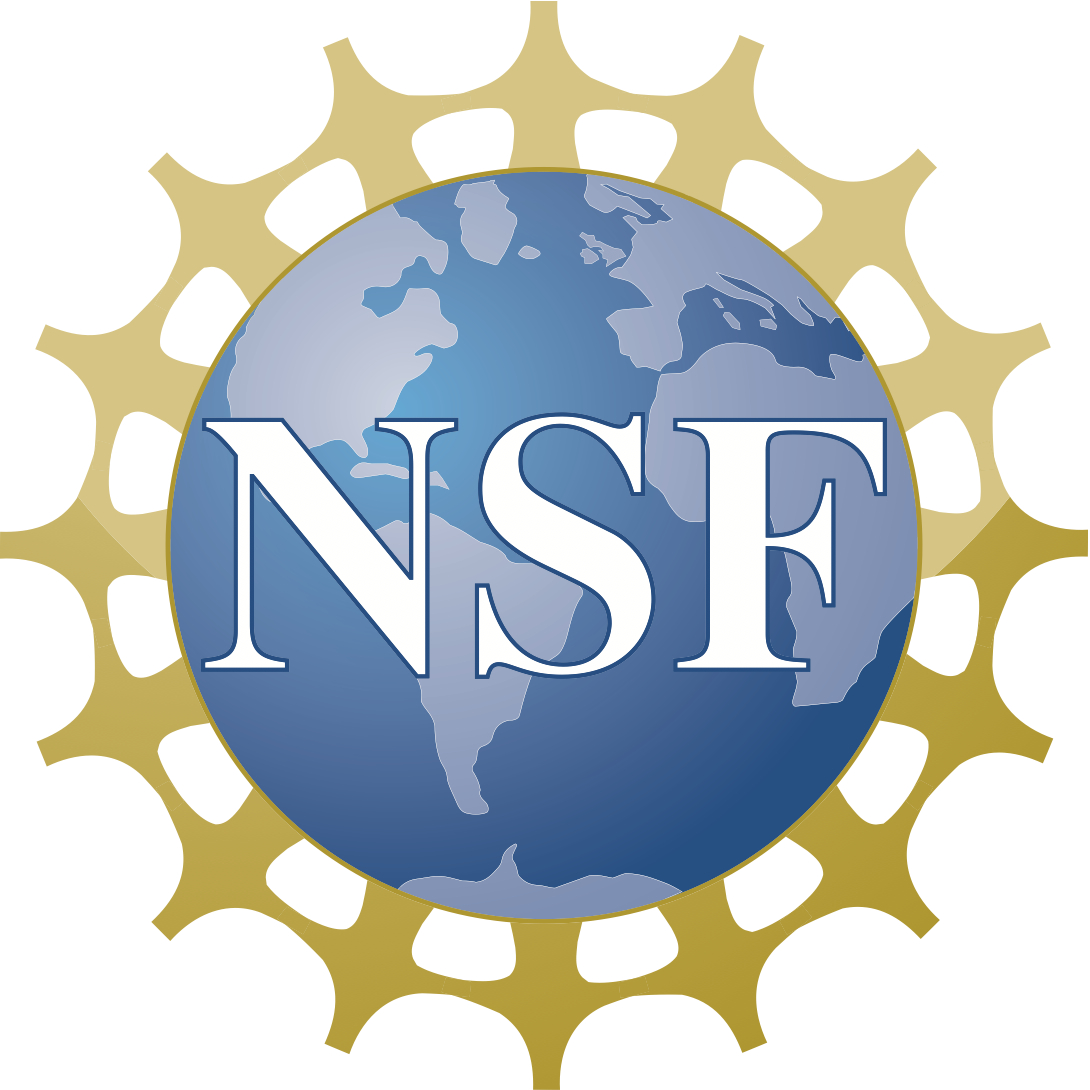Blog
subscribe via RSS
Poster Abstract Submission Open for the PyHC 2024 Summer School

As a reminder, the Python in Heliophysics Community (PyHC) 2024 Summer School is set to take place Monday, May 20th to Friday, May 24th at the prestigious Laboratory for Atmospheric and Space Physics (LASP) in scenic Boulder, Colorado, USA and online on Zoom. This year’s Summer School builds on the foundational success of its predecessor, offering an even deeper dive into the rich ecosystem of Heliophysics Python packages. Open to undergraduate and graduate students, early career scientists, and anyone eager to deepen their understanding of Python in the Heliophysics and Space Weather disciplines, this program promises a mix of in-depth tutorials, engaging demos, and hands-on sessions, delivered by some of the field’s leading experts. If you have not yet registered for the summer school, it is free to do so and a link for it can be located on the summer school’s web page. You’ll also find there a link to suggesting housing, NSF travel support applications, specific location, the agenda, and other important information.
If you plan to attend the PyHC 2024 summer school on site in Boulder, CO at LASP, and are interested in presenting on your work within Heliophysics/Space Physics and Python, the summer school poster session is your best bet! Bonus points if you can show work you’ve done that leverages the PyHC ecosystem. We have created a Google form to which you can submit your abstracts for the poster session, which will help the organizing committee adequately plan for the poster session, and ensure all submissions are on topic.
Submit PyHC 2024 summer school poster abstracts here. Deadline for abstract submission is Monday, May 6th, 2024 at 11:59 PM MT.
NSF Travel Support for the PyHC 2024 Summer School

The Python in Heliophysics Community (PyHC) is thrilled to announce that we were awarded $50k of NSF travel support to provide to selected attendees of the PyHC 2024 summer school! Per NSF policy, only US citizens and those with lawful permanent resident (LPR) status are eligible for the stipend.
Travel support applications will be vetted and approved by the summer school planning committee. Applications will be scored on need (whether the travel grant strongly determines their ability to attend onsite), career stage (student, post-doctoral, early career, or within 5 years of most recent degree given preference), and equity (ensuring travel funds are disbursed to multiple institutions, rather than focusing on large cadres from the same institution).
Funding specifications: Once applications have been reviewed, we will award flat-rate travel stipends of $2000 - $2500 (depending on home institute location) to selected attendees. These awards will be sent out as reimbursements for the meeting, therefore the attendee will have to float the cost up to that point.
Apply for the NSF-sponsored travel funding here. Applications are due by Monday, April 29th, 2024.
PyHC Spring 2024 Meeting Dates Announced
PyHC serves as a community knowledge base for performing heliophysics research in Python, aiming to provide a variety of tutorials and resources, a list of useful packages, general discussion, and advice. Twice yearly, PyHC meets in person. These meetings are open to anyone, from individuals already utilizing Python heavily in developing open-source heliophysics packages to those who are just getting into using Python and open source development.
PyHC’s first meeting of 2024 will be held remotely on Zoom. The meeting will run Monday, March 11th, 2024 – Thursday, March 14th, 2024, from 9 AM – 11 AM MT each day. The Zoom sessions will be recorded. Expect excellent discussion opportunities, core project updates, and other related talks and demos! See the full agenda for dates/times of the various sessions. The agenda is currently being finalized, and thus is subject to change.
The meeting’s web page can be found here. Registration—which is free but required—can be found here. The meeting’s web page also has a link to registration, as well as the Zoom telecon information, links to important documents, etc. If you’d like to join our mailing list to learn more information about the meeting and other upcoming events, please see the PyHC Contact page for instructions. You’ll also find links there for joining our Element and Helionauts chat groups (where we discuss various PyHC issues/topics, as well as discussing other Python-related questions), as well as a link to connect with PyHC on Twitter!
Registration Deadline: EOD, Friday, March 8th, 2024. Note: If you already registered and later decide to change your registration, you should be able to do that directly, but if you experience any difficulties please email Julie Barnum or Shawn Polson.
A Much-Anticipated Sequal: the PyHC 2024 Summer School

The Python in Heliophysics Community (PyHC) is excited to announce its 2024 Summer School, set to take place Monday, May 20th to Friday, May 24th at the prestigious Laboratory for Atmospheric and Space Physics (LASP) in scenic Boulder, Colorado, USA.
This year’s Summer School builds on the foundational success of its predecessor, offering an even deeper dive into the rich ecosystem of Heliophysics Python packages. Open to graduate students, early career scientists, and anyone eager to deepen their understanding of Python in the Heliophysics and Space Weather disciplines, this program promises a mix of in-depth tutorials, engaging demos, and hands-on sessions, delivered by some of the field’s leading experts.
Remote options will be available for those unable to make the trip to Boulder. The presentations will also be recorded and streamed to YouTube. Further, in keeping with PyHC’s commitment to knowledge-sharing, this year’s event remains FREE for all attendees.
See the Summer School’s web page for more information regarding the agenda, a link to registration (due by Monday, 29 April 2024), housing information (there’s a hotel option for reduced costs before 19 April 2024), and other pertinent information!
PyHC Spring 2023 Meeting Dates Announced
PyHC’s Spring 2023 Meeting will be the first hybrid meeting to take place since the pre-pandemic times!
We’ll host the in-person portion at LASP | CU Boulder, and online participation will be available at this Zoom link (Meeting ID: 973 7236 9069). The Zoom sessions will be recorded. It will be spread across three days, starting Tuesday, May 16th, 2023 and ending Thursday, May 18th, 2023. We’ll hold tutorial, hackathon, and project update sessions, as well as some other discussions that are relevant to the community. See the full agenda for dates/times of the various sessions. Note that the agenda is subject to change.
The meeting’s web page can be found here. Registration—which is free but required—can be found here. The meeting’s web page also has a link to registration, as well as the Zoom telecon information, links to important documents, etc. If you’d like to join our mailing list to learn more information about the meeting and other upcoming events, please see the PyHC Contact page for instructions. You’ll also find links there for joining our Element and Helionauts chat groups (where we discuss various PyHC issues/topics, as well as discussing other Python-related questions), as well as a link to connect with PyHC on Twitter!
Registration Deadline: EOD, Friday, May 12th, 2023. Note: If you already registered and later decide to change your registration, you should be able to do that directly, but if you experience any difficulties please email Julie Barnum or Shawn Polson.